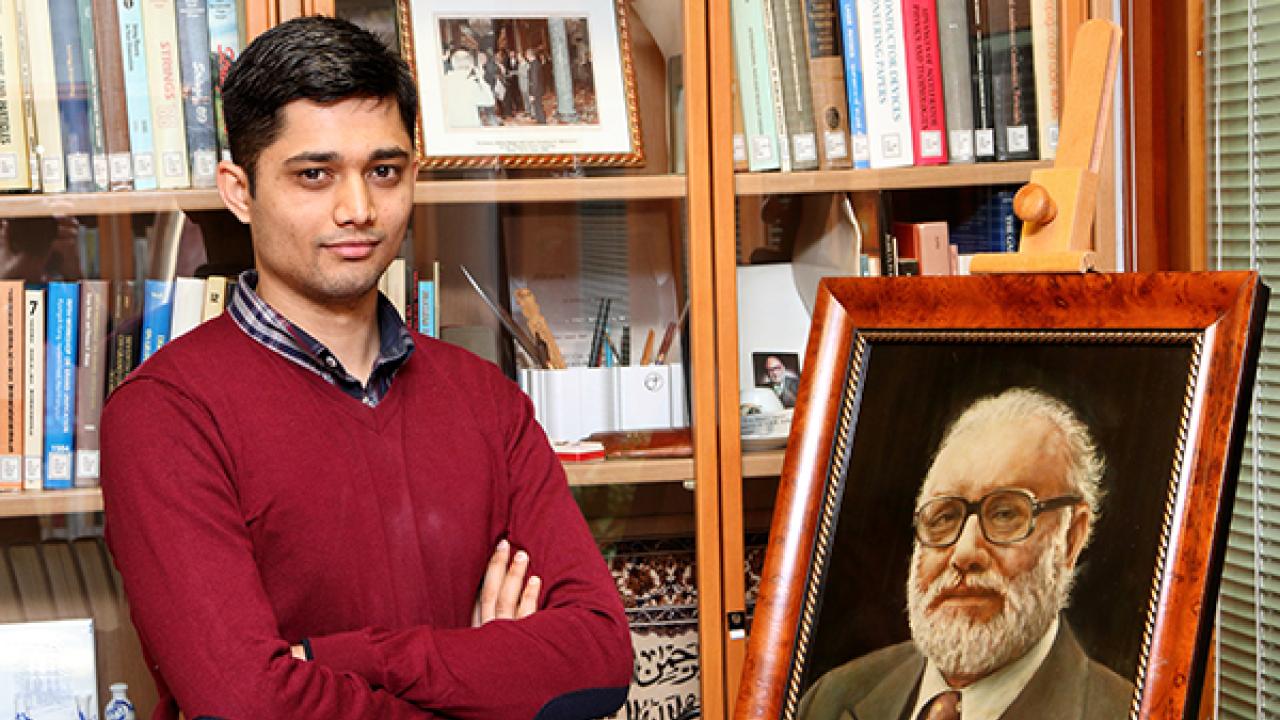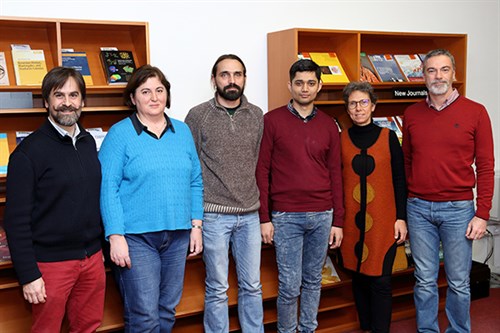
Like most ambitious, intelligent young people, Sadiq Khan aspired to a university education followed by employment in a field related to his studies. The 26-year-old Pakistani was well on his way to reaching his career goals: the bachelor’s degree in international relations he had earned from the University of Peshawar helped him secure work at two United Nations agencies in nearby Afghanistan.
But those achievements masked profound, violent changes taking place in Sadiq’s native northern Pakistan, ones that eventually would compel him to leave his family and his career for an uncertain future as a refugee. Sadiq’s path in this alternative fate would eventually lead him to a place well known as a peaceful hub of international cooperation: ICTP.
His decision to flee Pakistan came after years of political turmoil in the country's northwest region. Polite and soft spoken, Sadiq describes the growing terror of life in his home country at the hands of extremists: his father, shot dead at the local mosque; the Taliban, threatening students and demanding exorbitant bribes. Some terrible events from the region made international headlines, such as the 2012 attack on schoolgirl activist Malala Yousafzai, and the 2014 massacre of schoolchildren in Peshawar.
Sadiq began receiving personal threats, and was told that he could no longer work for the UN agencies. With no job to provide the income needed to pay the Taliban’s price for protection, he had little choice but to join the more than 1.2 million Pakistanis from the country’s northwest provinces who have been displaced by violence over the past decade. Thus began a harrowing journey through what Sadiq recalls as countless borders as he made his way toward safety in Europe.
He arrived in northeast Italy at the beginning of 2016, sought asylum in Gorizia, and was assigned to a refugee camp in Sagrado. It was here that his path and ICTP’s would intersect.
A casual encounter between Matteo Marsili, ICTP physicist, and Daniela Humar, who works as a psychologist in the refugee camp, made this possible. Inspired by Buddhist philosopher Daisaku Ikeda's peace proposal, which has been submitted to the UN, Marsili was looking for ways to do something for the refugee crisis. “The proposal talked about the millions of refugees we now have, and urged people to do something concrete about this, as it is something that does not just involve institutions, but each and every one of us,” explains Marsili, adding, “It is an emergency, something that is going to last, for which we have no really good solutions.”
Daniela Humar, on the other hand, was looking for opportunities to offer to the brightest of the residents in the camp, to rescue them from the apathy of camp life. Aware of ICTP’s reputation as an international organization sponsored by the UN, she suggested establishing an internship at the Centre as a way to help some of the highly educated camp refugees. “Everybody at ICTP was happy to do this, and Daniela could guarantee that the people selected for the internship had good references and would be good workers. Indeed, we were worried that the candidates would be overqualified for the work they would be doing,” says Marsili.
A pilot project soon began. With his UN experience and degree in international relations, Sadiq was the perfect candidate for the ICTP internship, and was offered work in the Centre’s Marie Curie Library. The opportunity has allowed him to turn the page to a brighter future. He has earned the respect and affection of his library colleagues. ICTP Director Fernando Quevedo supported Sadiq’s successful application for a fellowship the Italian government gives to refugees that will fund his pursuit of a master’s degree in international relations at the University of Trieste.
“The good thing I got here at ICTP is the integration with the people, and my path to education back,” says a grateful Sadiq.
The pilot internship proved successful for all parties. Sadiq, due to his professional, courteous manner, continues to work in the ICTP library. Not far from where he sits at the check-out desk is a room dedicated to another Pakistani, ICTP founder Abdus Salam. Known as much for his humanitarian side as for his Nobel Prize-winning science, Salam surely would have approved of ICTP’s small but important action to help victims of one of the largest crises of our times.
 |
| Sadiq Khan with his colleagues in ICTP's Marie Curie Library |
















